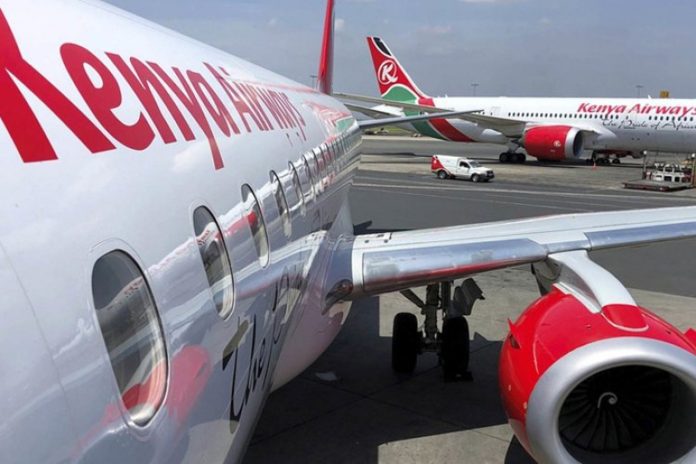It costs at least Sh8 million to train a pilot at the Kenya Airways (KQ). This KQ pilot training cost has been revealed by the Kenya Airways chief executive officer Allan Kilavuka when he explained the overall costs that the national carrier is required to meet to keep flying.
According to Mr. Kilavuka, KQ currently has over 350 pilots. This, Mr. Kilavuka said, implies that the carrier has made an investment of over Sh2.8 billion in pilot training programs alone.
At the same time, Mr. Kilavuka explained that the national carrier has over 1,000 cabin crew. He put the cost of training cabin crew at Sh500,000 per person. This implies that the national airline has spent at least Sh500 million on cabin crew training programs.
Apart from pilots and the cabin crew, KQ has army of engineers, loaders and ground handlers who run things behind the scenes. Mr. Kilavuka said that the number of engineers and technicians at the airline stands at around 750. These professionals are trained at a cost of at least Sh7.5 million per person. This means that the airline’s total cost for training engineers and technicians stands at around Sh5.6 billion.
“[We have] about 110 takeoffs and landings each day. [To make these operations possible, we] require over 3,300 man-hours daily,” said Kilavuka. “
Every flight demands a small army of skilled workers. It takes at least 100 people, from pilots, engineers, cabin crew, loaders and ground handling professionals, to get one aircraft from the gate to the runway.”
READ MORE: 9 KQ Dreamliners’ engines maintenance to cost Sh34 billion over time
At the same time, Mr. Kilavuka addressed the reasons why the national carrier is not in the news buying new aircraft. He explained that expanding a carrier’s fleet through purchase of new aircraft is not as easy a task as many would assume, especially when the aircraft is a widebody.
For instance, said Kilavuka, acquiring a brand new Boeing 787 Dreamliner costs around Sh32 billion. With the 9 Dreamliners owned by the national carrier, this implies that KQ has invested around Sh288 billion into the planes, before maintenance costs are factored.
“Keeping Kenya in the skies is not simply a matter of commercial viability. It is an investment in the country’s economic resilience, global connectivity, and future prosperity,” said Kilavuka.









